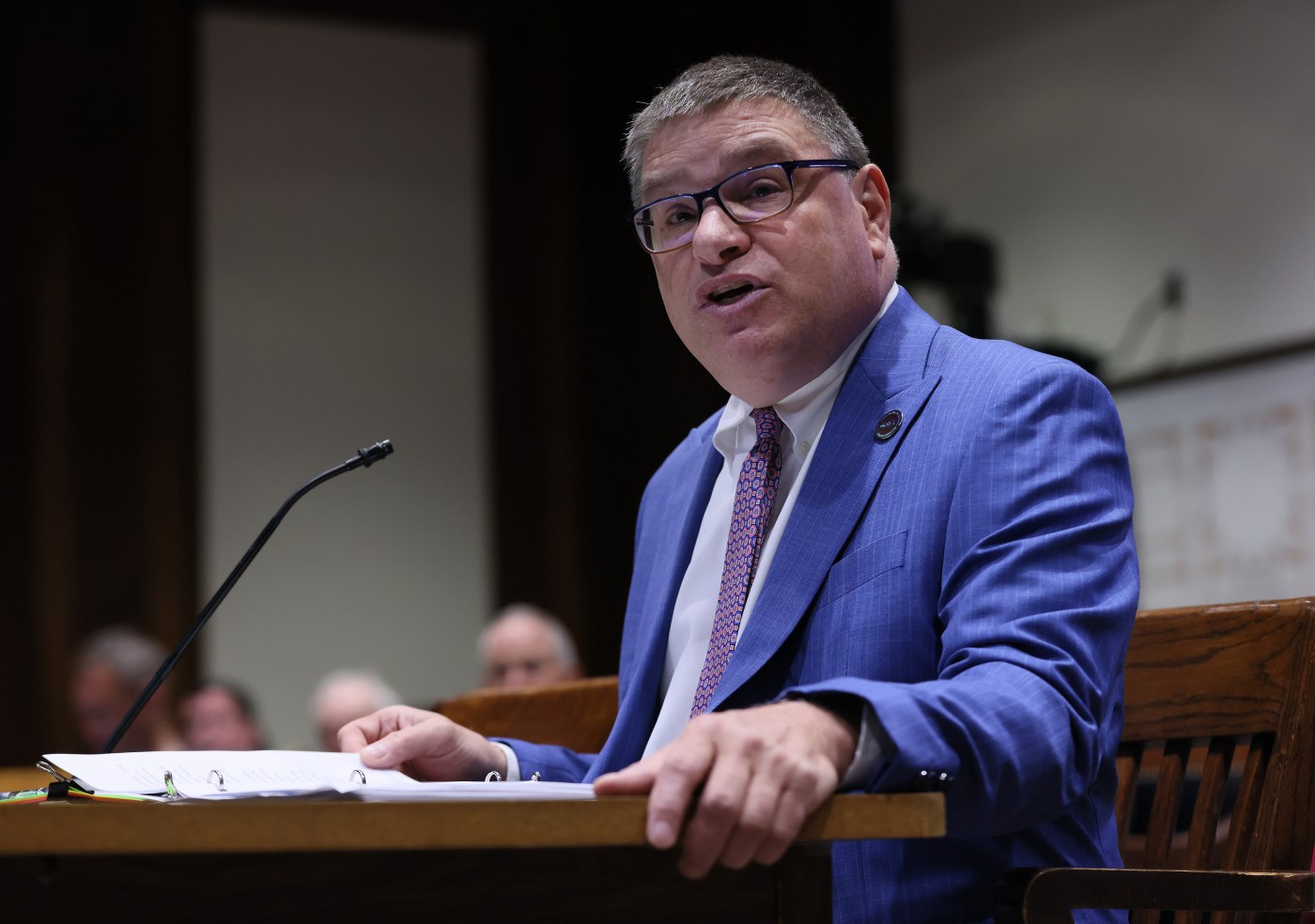
Weed out Cannabis Commission problems with legislation, IG tells lawmakers
Something has to change at the Cannabis Control Commission if the Legislature wants to keep the Commonwealth’s thriving but young marijuana industry alive and able to fulfill its mission, the state’s Inspector General told lawmakers Tuesday.
During a hearing of the Joint Committee on Cannabis Policy, Inspector General Jeffrey Shapiro told lawmakers he’s concerned that turnover at the agency, both among commissioners and staff, reveals a level of ambiguity in the laws allowing recreational marijuana use by adults in the state. As a result the Commission lacks the legal clarity to effectively fulfill parts of it’s important mission.
“As I have said publicly and repeatedly, this is not about specific individuals. It is about a statute (Chapter 55 of the Acts of 2017) that is inconsistent because it assigns the same authority to two positions — the Chair and the Executive Director,” Shapiro said.
Shapiro’s testimony comes after he sent a letter House Speaker Ron Mariano and Senate President Karen Spilka, asking them to consider the appointment of a receiver to oversee the agency responsible for the Bay State’s $7 billion dollar pot industry, which annually sent $1 billion in taxes back to the state and municipalities.
The need for a receiver, Shapiro said in his letter and reiterated to the committee, comes following a long series of leadership changes at the Commission, including the abrupt and unresolved removal of Chairwoman Shannon O’Brien.
O’Brien remains suspended with pay from her $181,722 job, while her status awaits a final decision by Treasurer Deborah Goldberg.
Shapiro said that his office has received numerous complaints about the Commission over the pace at which they do business, especially “about the length of time the Commission takes to process registration applications, investigations, and enforcement actions.”
“The industry needs the attention of the Commission and the professional leadership and not a furtherance of the issues that have been a hallmark of the Commission, nearly since inception. That is not to say that the Commission is not performing and has not done any good work. But without stability and ultimately corrective structural changes the Commission will have trouble reaching its highest potential,” Shapiro said.
All of the issues Shapiro apparently finds when looking into the Commission, he said, are not something which might be fixed by the four remaining commissioners, or via the appointment of a permanent executive director. The systemic problems he finds, Shapiro said, can only be addressed by the people who made the law.
The commission’s recent decision to strip their acting executive director of most day-to-day responsibilities forced Shapiro’s hand, he told the committee, resulting in his calls to address the problem through a receivership process and for lawmakers to do so before their formal session ends for the year in three weeks.
“Without any change to the statute, I believe, the next leaders – Chairs, Commissioners, Executive Directors, may not have any greater success,” he said.
The commission has been working on authoring a “governance charter” to delineate responsibilities between the commission and the executive director for sometime, and Acting Chair Ava Callender Concepcion told the Herald during a recent interview that the charter will be released at the Commission’s July public meeting.
Shapiro told lawmakers that the Commission has already spent $160,000 and more than a year working to develop that charter, and that “the length of time and resources devoted to mediation and the governance charter raise questions.”
However, he stressed many times, the lack of a governing document is not even the real issue. The commissioners and the staff there are not at fault for the ambiguities in the laws which dictate their work.
“This is not about the people, but it’s about structure, the governing structure needs to be fixed,” he said.
While the problem remains unresolved, he said, the commission can’t fulfill its obligation under the law “to assist communities and individuals that were disproportionately negatively impacted by past actions regarding the application of drug laws, the criminal justice system, lack of economic opportunity and empowerment.”
“These issues and others were at the forefront of what the newly emerging cannabis industry was designed to confront and address. While progress is being made, the ongoing issues impede the Commission from carrying out its stated mission,” the IG said.
Lawmakers were not surprised by Shapiro’s assertions, committee co-chair State Rep. Daniel Donahue said. Stumbles at the Commission have been widely reported to lawmakers both in the press and by constituents, he told the IG.
“This letter, though its timing may have been surprising, is not a shock and echoes concerns that we have heard from other avenues,” Donahue said.
Massachusetts voters legalized marijuana through a ballot initiative in 2016.
Marijuana buds sit ready for harvest. (AP Photo/Tony Dejak, File)


